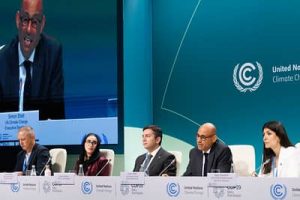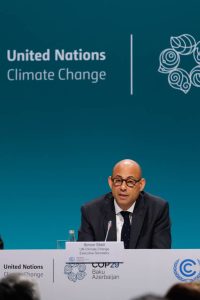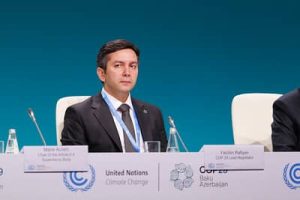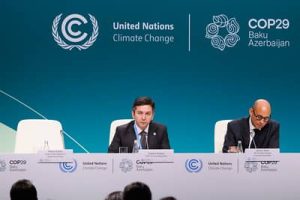UN Climate Chief Simon Stiell is making a strong appeal for more aggressive climate financing, saying it’s critical not only for tackling the climate crisis but also for controlling global inflation.
Simon Stiell pointed out that the impacts of climate change are already cutting into GDP by up to 5% in many countries. He emphasized that climate change is no longer a distant issue; it’s affecting daily life and driving up costs for households and businesses worldwide. “Climate disasters are increasing costs everywhere,” he warned, adding that if climate action stalls, inflation could worsen.
Drawing comparisons to the COVID-19 pandemic, Stiell reminded leaders of the consequences of delayed action, saying, “Billions suffered because we didn’t act fast enough. Supply chains were broken, economies were disrupted, and the impact was felt globally. Let’s not make that mistake again. Climate finance is global inflation insurance.”






He urged leaders to prioritize climate-related costs as “public enemy number one,” warning that keeping climate change low on government agendas could have disastrous effects.
Stiell also called for a clear global climate finance goal at COP29, stressing, “Billions of people cannot afford for governments to leave COP29 without a real, actionable finance plan.” He encouraged leaders to push their negotiators toward new national climate targets, known as Nationally Determined Contributions or NDCs, to help all countries benefit from a shift to clean energy.
“These are tough times, but giving up isn’t a strategy,” Stiell concluded. “Our process is strong, and it will endure. International cooperation is the only way forward.”
With a sense of urgency, Stiell ended his speech by urging leaders: “The time for hesitation is over; let’s get to work.”





